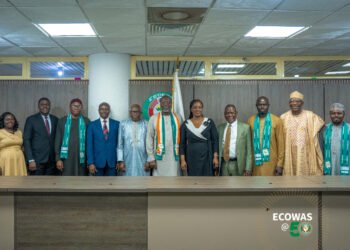A member of the National Democratic Congress (NDC), Mr. John Abu Jinapor, has intimated that the report that is being investigated by the Special Prosecutor, Mr. Martin Amidu, on the Agyapa Royalties Deal should be conducted with transparency and accountability, divulging all the necessary information to the citizenry as much as the Office can. He stated that, “unlike the issue of cocoa roads, it should be made available.”
This statement comes on the back of Government suspending the launch of an Initial Public Offer (IPO) of the Agyapa Mineral Royalties Limited. The Finance Ministry explained that the move was to allow the Office of the Special Prosecutor ample time to conduct its corruption risk assessment regarding the transaction.
Speaking on Breakfast show, Mr. Jinapor iterated that the Agyapa Royalties Deal is not a deal in the right direction. Though he expresses excitement that the IPO has been suspended to conduct a corruption risk assessment, he however, believes that the move by the government is not enough.
He further opined that, in accordance with best practices, government should refrain from rushing through such agreements in parliament.
Buttressing his point, he opined that the essence of the Parliament of Ghana is to make accurate and meticulous decisions. According to him, parliament should have done due diligence, gone through the motion before the final approval. He further claimed that in less than 24hours, the bill was presented with five bulky agreements and all those agreements were passed on that same day.

He further elucidated that most of the agreements that goes to the floor of parliament without consensus, eventually tends out to have challenges due to real resentment from the other side of the divide.
According to Mr. Jinapor the issues that arises from such agreements undermines the Parliament of Ghana as an institution. He opined that the job of the Member of Parliament (MP) is to be the citizen’s representative. So, it is the fiduciary duty of the MP to execute its duties in an accurate manner.
Going through a flash back, in 2019, the Power Distribution Services (PDS) had a concession agreement with parliament. It was a brief but momentous journey as government on one side and the managers of the PDS engaged in what was largely called a corporate governance confusion over the takeover of the strategic assets of Electricity Company of Ghana (ECG) which is estimated to be some $3 billion. When the reality of the deal dawned on many Ghanaians as the ECG took a backstage, Ghanaians began to question the integrity of the arrangement and wished a reversal would be a better option but for the legalities entailed in the contract. The agreement was later terminated by Government after the agreement was passed and PDS had worked for a short while.
Still reminiscing, government in 2018, withdrew the African and Middle East Resource Investment Group (AMERI) deal which was also entangled with several controversies. Policy think tank IMANI described the deal as a “tidy collusion to defraud the state.” It’s Vice President Kofi Bentil alleged government could have gotten the emergency power plants at $220m if it went straight to producers but, it went through a third party AMERI and ended up paying over $150million to the company for no work done. The deal was revoked after it went to parliament.
All these agreements including AKER agreement begs the question, does the government make meticulous and accurate decisions on such huge deals? If they do, what goes into the motion and decision-making process? Is government a ‘rusher’ in accepting deals?




















